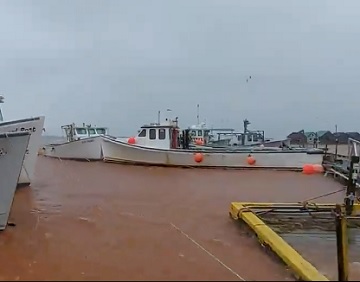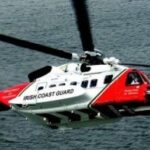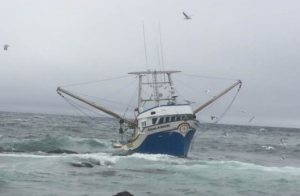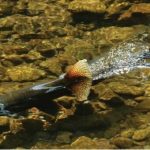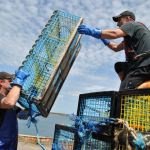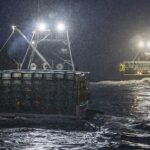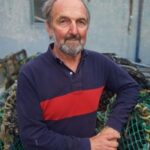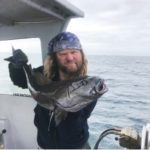Tag Archives: DFO
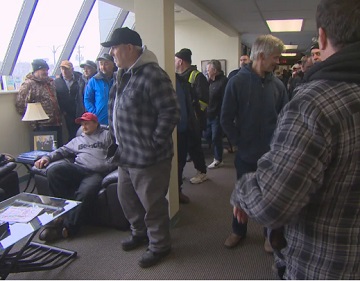
Snow crab fishermen protest quota allocations on first day of price-setting
About 100 snow crab fishermen descended Monday on a St. John’s hotel, where officials had begun setting crab prices for the season, to protest a management system and quotas they say need an overhaul. The protest, at the Sheraton in downtown St. John’s, centred on a new precautionary approach designed to protect stocks, implemented in December by the Department of Fisheries and Oceans, which manages inshore and offshore crab stocks differently. Bay Bulls fisherman Jason Sullivan says the change leaves them with less to catch. “These guys are at 30 per cent of their original quotas, and they need an increase,” Sullivan said Monday. “They’re catching their quotas in one single day.… . >click to read< 21:42

Good Indicators for Capelin Health, Despite DFO’s Doubling Down on Doom and Gloom
ST. JOHN’S, NL – Following DFO’s technical briefing on the 2J3KL capelin stock today, fish harvesters are optimistic that more favourable environmental conditions could lead to stock growth. “FFAW-Unifor is not surprised with the tone of today’s technical briefing by DFO Science, which have been consistently negative, irrespective of the data,” says FFAW-Unifor President Greg Pretty. “DFO Science is supposed to be an unbiased, transparent, and evidence-based in their approach. But most of them don’t spend more than a day on the water each year. They don’t see or appreciate the qualitative observations professional fish harvesters provide, and how we can support more robust and reliable data collection for capelin and other species. Instead of contributing to a productive relationship and more informed stock assessments, we have government scientists whose sole objective is to shut commercial fisheries down, regardless of facts,” says Dennis Chaulk, fish harvester from Bonavista Bay with over 28 years of experience on the water. >click to read< 19:17
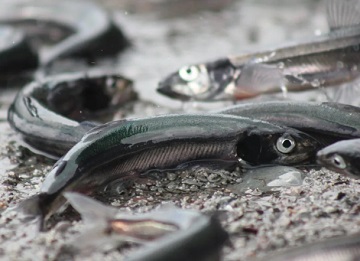
Positive signs in newest capelin stock assessment, but the tiny fish is still in the critical zone
“The capelin were in very good condition in the fall. That meant they’re longer and heavier than average. There’s lots of zooplankton, especially large zooplankton in the ecosystem,” said Hannah Murphy, a DFO research scientist and lead stock assessor. “We also had an increase in our larval abundance index this year, which is great. Larval survival is related to recruitment in capelin, so the more larvae we have and the more that survive, it’s better for the capelin stock.” Murphy said a full capelin acoustic survey happened over 2022, the first since 2019 due to the pandemic in 2020 and vessel availability in 2021. But the positivity ended there. This year, for the first time, the DFO has come up with a limit reference point for capelin. It’s set at 640 kilotons, the weight of fish in the water, and marks the boundary between the cautious and critical zones. >click to read< 17:32
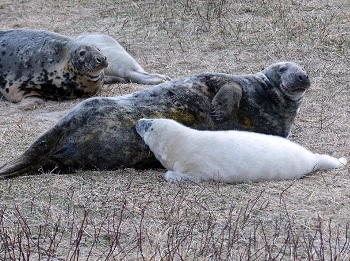
Seafood industry urges ‘extreme caution’ on controlling seals to avoid consumer backlash
Canada’s seafood industry is urging Ottawa to use “extreme caution” when considering measures to control the growing seal population, warning they could jeopardize market access and acceptance of Canadian seafood. But according to Conservative fisheries critic Clifford Small, a member of parliament from Newfoundland and Labrador, those concerns are overblown. “It is immensely important that as the government considers potential steps moving forward, its actions do not disrupt either the market access or acceptance of Canadian fish and seafood products, both internationally and domestically,” said Paul Lansbergen, president of the Fisheries Council of Canada. Lansbergen said both the U.S. and the European Union have strict rules regarding the harming of marine mammals during fishing. >click to read< 14:50
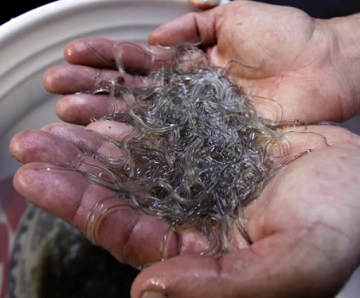
Quota transfer to Maritime First Nations prompts Federal Court challenge
Commercial licence holders in the lucrative Maritime baby eel fishery have launched a Federal Court challenge over the decision to take 14 per cent of their quota and give it to Indigenous groups in 2022. The quota of baby eels, or elvers, was worth millions of dollars. It was reallocated without compensation to fulfil First Nation treaty rights to fish. The elver redistribution raises broader questions about what licence holders in other commercial fisheries can expect if their allocations are cut in favour of First Nations. >click to read< 09:23
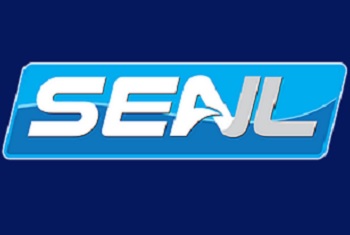
SEA-NL calls on DFO to delay mandatory introduction of electronic logbooks
Seaward Enterprises Association of Newfoundland and Labrador (SEA-NL) is calling on Fisheries and Oceans to delay the mandatory introduction of electronic logbooks (ELOGS) until concerns are addressed about the security of personal information and commercial catch data. “Red flags have been raised over the security of highly valuable catch data and personal information,” says Ryan Cleary, SEA-NL’s Executive Director. “The federal government must ensure Canadians that the country’s food supply is secure, commercial sensitive catch data will remain with owner-operators and fleets, and that individual privacy is protected.” >click to read< 1:14
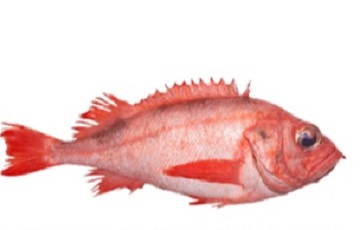
Over a Million Bucks for Bruce – Offshore Companies Get Leg-Up from DFO
This week, news broke that DFO spent untold millions completing two weeks of science work for redfish on the Mersey Venture, a 200-foot factory freezer trawler owned by Mersey Seafoods and part of the offshore lobby group, the Atlantic Groundfish Council headed by Bruce Chapman. Go on, ‘by. Surely the Union’s not out complaining about the government doing more science work when that’s what they’re going on about half the time? In an effort to simplify the complex history behind the issue, I’ll give readers some background. In a nutshell, DFO Science is directly subsidizing corporate offshore fisheries development at the expense of coastal communities and the owner-operator fishery. >click to read< 10:32
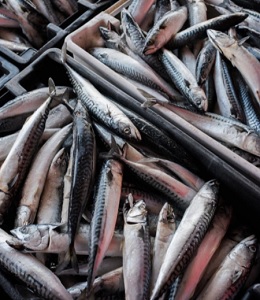
Unfounded Environmentalist Dogma Overshadows DFO Mackerel Meeting
March 2, 2023 – JOHN’S, NL – Despite the mountains of evidence and years’ worth of work by inshore fish harvesters and the Union that represents them, the federal meeting to determine the fate of the Atlantic Mackerel Fishery in 2023 has left fish harvesters feeling frustrated and ignored.FFAW-Unifor is calling on Minister Murray to commit to fully investigating the possibility of mackerel spawning along the Northeast coast by conducting an egg survey and a robust sampling program. FFAW-Unifor is also calling on DFO to organize an urgent conference of mackerel harvesters and scientists from other North Atlantic countries to share information on shifting migratory patterns of this highly migratory species. >click to read< 17:23
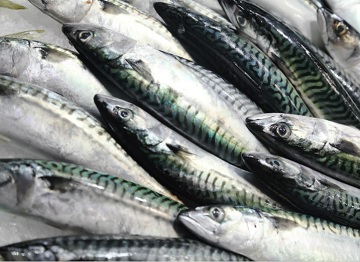
Atlantic mackerel population continues to decline a year after fishery moratorium
The Atlantic mackerel population is continuing to decline after a decade of falling numbers, according to a federal assessment presented to industry and environmental groups in Halifax this week. According to the 2022 assessment, mackerel stock remains in the “critical zone” — where serious harm is occurring — and the average number of fish reaching spawning age is only 27 per cent of what it was between 1969 and 2011. “The amount of young fish entering your population has been rather low in the last couple of years. That’s concerning,” Elisabeth Van Beveren, a biologist with the federal department of Fisheries and Oceans, said. In Newfoundland and Labrador, seafood companies and fishermen have claimed for years that DFO has it all wrong because mackerel are plentiful around their coast. >click to read< 15:32
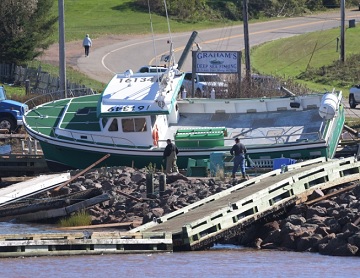
Fisheries Department scrambled to claw back ‘ill-timed’ lobster tweet during Fiona
Some people can’t see the forest for the trees. Others can’t see the hurricane for the lobsters. On Sept. 24, around 9 a.m. Atlantic time, a few hours after Hurricane Fiona had slowed slightly into a post-tropical cyclone and slammed into Nova Scotia, the federal Fisheries Department issued two preplanned posts on Twitter and Facebook. The first urged everyone to avoid the coastline and stay safe. The second warned them off helping themselves to wayward lobsters. “As well, if you find lobsters washed up on the shore after the storm, remember it is illegal to harvest them,” it read. “Simply leave them there.” >click to read< 10:17
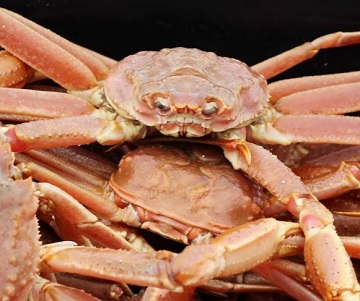
N.L. snow crab population remains healthy, though market uncertainty persists
Newfoundland and Labrador’s most valuable fishery may be encountering rough market conditions, and the economic outlook for this year is bleak, but an assessment reveals that snow crab stocks remain strong, a few years after nearly collapsing. “We’ve seen an increase in the last few years in exploitable biomass,” Five years ago, alarm bells were sounding as the biomass shrank to historic lows, resulting in steep quota cuts for commercial harvesters and worries the industry would collapse. Landings hit a 25-year low in 2019. But now industry leaders sound much more upbeat about the health of the stocks. >click to read< 17:27
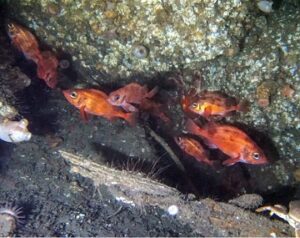
In Cod’s Shadow, Redfish Rise
In the North Atlantic, the trajectory following fisheries collapse has not been forgiving. Even decades after overfishing drove seemingly inexhaustible species like Atlantic cod off a precipice, many populations—most notably, of Atlantic cod—have remained stubbornly low. But in Canada’s Gulf of St. Lawrence, an exception to the rule is emerging from the depths. Redfish, a deep-dwelling species found in the western Atlantic from Baffin Island to New Jersey, is an unlikely hero: a scarlet groundfish the length of a bulldog sporting a faintly outraged expression and a line of spines sharp enough to draw blood. More to the point: aside from readers of Dr. Seuss, who’s even heard of a redfish? >click to read< 10:10
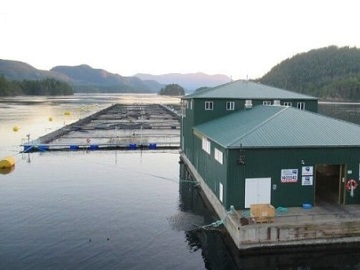
Canada Shuts Down 15 Fish Farms in B.C., Citing Risks to Wild Salmon
After years of concerns over the impact of aquaculture on wild sockeye salmon, Canada’s fisheries department has decided not to renew the operating permits of 15 Atlantic salmon farms in an environmentally sensitive area of British Columbia. In a news release, Fisheries Minister Joyce Murray noted that B.C.’s salmon runs are in “serious, long-term decline,” and some are at risk of collapse if action is not taken. Ten years have passed since the Cohen commission’s report, and more recent research indicates that the diseases associated with salmon-farming may have an impact on wild salmon in general and on Fraser River salmon smolts in particular. >click to read< 16:00
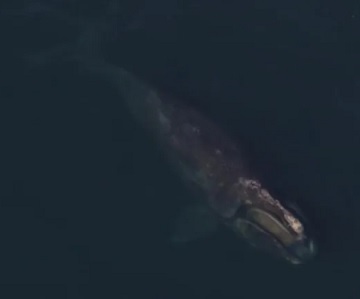
Right whale found entangled in Canadian lobster fishing gear in U.S. waters
A right whale found entangled in lobster fishing gear in waters off the southern United States was disentangled by U.S. marine mammal rescue responders last weekend. An investigation by U.S. officials and Fisheries and Oceans Canada has determined the gear was from Lobster Fishing Area 33 in Southern Nova Scotia, according to a DFO release. The adult whale is identified officially as North Atlantic right whale 1218 and known as Argo. According to the release, it is the first entanglement connected to Canada’s lobster fishery in five years. The release said the harvester reported the lost gear to DFO. >click to read< 17:58

SEA-NL calls on Ottawa to lift mackerel moratorium; at least match U.S. quota for 2023
Seaward Enterprises Association of Newfoundland and Labrador is calling on Fisheries and Oceans to lift the moratorium on Atlantic mackerel in 2023 and set a quota at least equal to the total allowable catch set this week by the United States. “It’s a senseless sacrifice for Canadian mackerel fishermen to remain under a moratorium when their U.S. cousins have never stopped fishing,” says Ryan Cleary, SEA-NL’s Executive Director. The CBC reports that earlier this week the United States set the 2023 TAC for Atlantic mackerel at 3,639 tonnes, a 27% decrease from that country’s 2022 quota of 4,963 tonnes. Meanwhile, Canada slapped a moratorium on the same Atlantic mackerel stock last year, and Ottawa has yet to announced whether there will be a commercial fishery this year. >click to read the rest< 15:33
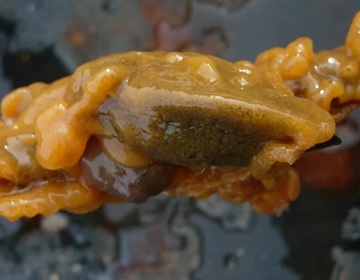
Sea vomit: Why DFO is worried about an invasive species with a disgusting name
Fisheries and Oceans Canada is asking fishermen to keep an eye out for an invasive species in the Bay of Fundy, one that has an unforgettable nickname. Pancake batter tunicate, more commonly known by its colloquial name sea vomit, has been spotted on the east coast of North America since 1982. The species is a creamy white colour, is slimy to the touch and is native to the ocean around Japan. It’s only been confirmed north of the U.S. border since 2013, but there is some evidence the invasive species is growing more prevalent in New Brunswick waters. >click to read< 09:06

Fisherman sentenced for ‘blatant and overt’ interference in Membertou lobster fishery
A Cape Breton fisherman has been fined $6,200 and ordered off the water for six months for cutting lobster traps fished by the Membertou band and obstructing fishery officers. The sentence was handed down in a Sydney, N.S., courtroom Wednesday after Bernard Douglas MacIntyre pleaded guilty on two charges. Two other counts were dropped. MacIntyre and others on his boat, Kelsey & Mitchell II, were seen cutting traps in Sydney Harbour on the night of Dec. 3, 2020. The only lawful lobster fishery underway in the area was for food, social and ceremonial licence holders. Members of Membertou First Nation were fishing from the Sydport wharf. >click to read< 14:56
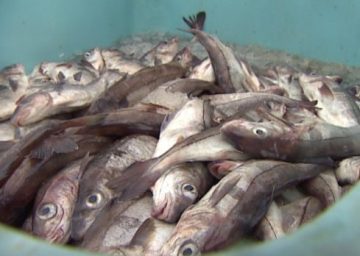
Canada, U.S. fail to reach agreement on quota for shared haddock stock in 2023
Canada and the United States have, for the first time, failed to agree on a shared quota for the transboundary haddock stock on the Georges Bank fishing grounds off southern Nova Scotia. The two countries have jointly managed the haddock fishery and two other straddling stocks, since 2000, but were unable to reach a consensus for the 2023 haddock quota. “While Canada and the U.S. tried to negotiate a shared haddock total allowable catch … our countries will be setting our own total allowable catch independently of the other,” The disagreement centred on the size of the quota cut. >click to read< 07:25
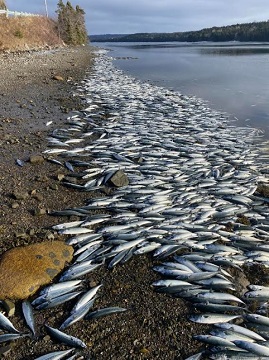
SEA-NL calls on Ottawa to lift moratorium on Atlantic mackerel
Seaward Enterprises Association of Newfoundland and Labrador is calling on Fisheries and Oceans Canada to lift the moratorium on Atlantic mackerel in 2023 and establish a quota at least equal to the United States. “DFO’s decision earlier this year to slap a moratorium on the Atlantic mackerel fishery while American fishermen continued to fish the same stock — combined with relatively weak science, and then even less data without fishermen on the water — was wrong from the get-go,” says Ryan Cleary, SEA-NL’s executive director. >click to read< 12:48
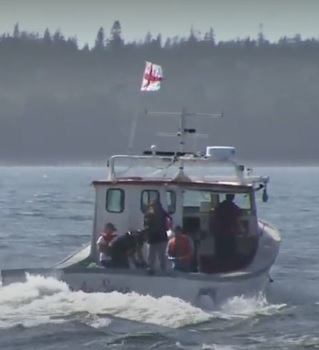
Conflict over new Indigenous lobster fishery continues to smolder amid some progress
Federal conservation officers have seized more than 7,000 lobster traps in the two years since violence flared in Nova Scotia when a First Nation tried to assert a treaty right by fishing out of season. Earlier this month, the Department of Fisheries and Oceans confirmed it had confiscated almost 2,000 traps this year alone, a figure that shows the dispute between Ottawa and some Indigenous fishers has not gone away, despite DFO’s best efforts to keep a lid on tensions. Tim Kerr, DFO’s director of conservation and protection in the Maritimes, said the department has stepped up patrols in the region to ensure safety and compliance with the rules. >click to read< 12:00
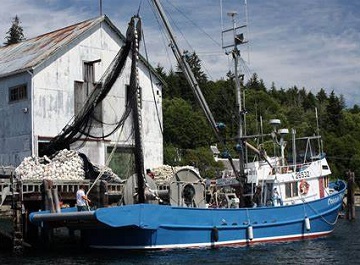
Feds launch licence buyback plan to scale down B.C.’s salmon fishing fleet
Looking to fix the problem of too many boats chasing too few fish, on Wednesday, Fisheries and Oceans Canada (DFO) unveiled details on its voluntary commercial licence retirement (LRP) program that will pay salmon harvesters to exit the industry. However, the union for commercial fishers says first impressions suggest the plan is “deeply disappointing” and designed to drive down the value of licences being bought out. DFO is allocating $123 million from its Pacific Salmon Strategy Initiative for the licence buyback and two additional future programs. >click to read< 08:30
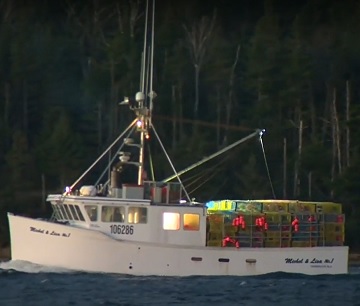
Opening days delayed for Canada’s largest and most lucrative lobster fisheries
The opening days for two of Canada’s largest and most profitable lobster fisheries have been delayed because of bad weather. The federal Fisheries Department says it is delaying by one day — to Tuesday — the opening of Lobster Fishing Area 33, which extends from Cow Bay in Halifax County south to Port La Tour, in Shelburne County. Meanwhile, the department has yet to announce the opening day for Lobster Fishing Area 34, which extends from Shelburne County around to the southwest coast of the province, because Environment Canada is forecasting gale conditions into Tuesday. Video, >click to read< 14:10

Mi’kmaw fisher hopes his treaty rights will prevail at trial
Matt Cope has already told the court that he was harvesting lobster in August 2020 when he was charged. While the fisher from Millbrook First Nation admits to that – Cope, 36, says his treaty rights should protect him from a conviction. Cope appeared at the provincial court in Digby, Nova Scotia where the Crown proved he violated the fisheries act. Officials with the Department of Fisheries and Oceans, also known as DFO, testified that on Aug. 28 and 29, 2020, they seized 90 lobster traps from the Bay of Fundy. Video, >click to read< 11:09
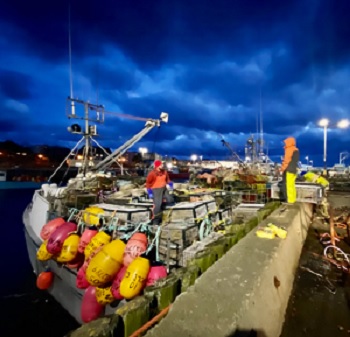
Smooth sailing not expected during lobster season off southwestern Nova Scotia
Southwestern Nova Scotia’s largest employer is gearing up for another season, however, this upcoming commercial lobster fishery comes with much uncertainty over what lies ahead for harvesters and the industry. Lobster shore prices have been down in other fishing districts ahead of the opening of this next commercial season and the cost of diesel and fuel prices, along with other expenses, is up. Lower prices for the catch, coupled with higher expenses to catch it, is not a great combination to be on the minds of fish harvesters as a new season gets underway. Photos, >click to read< 12:14
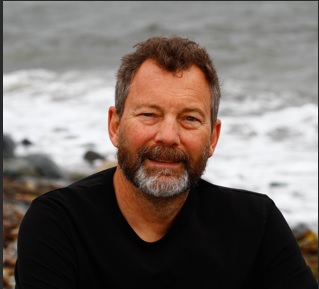
Canada’s efforts to rebuild depleted fish stocks are flopping, says ENGO Oceana
Major spending increases and policy changes by the federal government to protect and rebuild wild fish stocks in Canada have resulted in little improvement, according to the 2022 Fishery Audit released this week by environmental group Oceana Canada. In its sixth annual audit, Oceana says fewer than one third of wild marine fish stocks in Canada are considered healthy and most critically depleted stocks lack plans to rebuild them. The audit assessed 194 fish stocks in Canada. The audit says 72 per cent of DFO’s management documents do not formally consider climate change and that needs to change. >click to read< 12:33
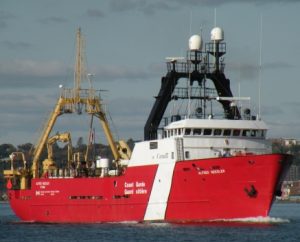
Repeated Failures: DFO ship woes hampering East Coast science surveys
DFO has missed multiple surveys as it struggles to bring new offshore fishery science vessels into service, and aging ships near retirement. Sailing restrictions imposed early in the COVID-19 pandemic contributed to the problem, but so too have breakdowns on older ships and part replacements needed on the two new ships stationed on the East Coast. The science surveys are used to assess the health of major fish stocks and are critical in determining quotas for commercial fisheries worth hundreds of millions of dollars in Atlantic Canada. “There’s huge consequences. We want to know what’s going on. We need the data,” said Carey Bonnell, vice-president of sustainability and engagement at St. John’s-based Ocean Choice International, which is a seafood company. >click to read< 08:13

Fishermen take federal government to court over right to sell Class B licences again
A law firm representing a little over half of the 75 remaining fishermen in the Maritimes with Class B licences is taking the federal government to court for a second time. Class B licences were created in 1976 by the federal government with the goal of reducing fishing in the name of conservation. They were assigned to fishermen who had another primary source of income and can’t be reassigned or sold. Class B licences only allow for 30 per cent of the fishing that Class A licences allow. Donald Publicover, 71, of Nova Scotia wants the ability to sell or transfer his licence to ensure financial stability for his family, which includes two adult children with cerebral palsy. >click to read< 11:04
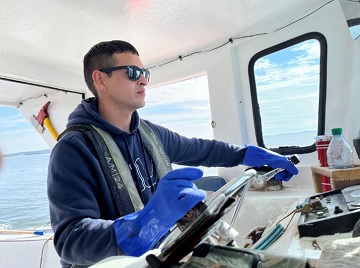
‘We tried it your way, it didn’t work’: First Nation calls on Ottawa to end fisheries dispute
Catching and selling lobster during the fall season is how some Mi’kmaw fishermen of Potlotek First Nation make a living. Craig Doucette and a few others from Potlotek have been fishing in the St. Peter’s Bay area of Nova Scotia since the beginning of October. Doucette says he is fishing under his inherent Treaty Right to fish, hunt and gather in pursuit of a moderate livelihood, with those rights upheld by a Supreme Court ruling. Fisheries and Oceans Canada (DFO) sees what Doucette is doing as illegal because he is fishing out of season and will affect lobster conservation. >click to read< 09:51

Canadian Lobster Fishermen Move Towards Electronic Declarations
Electronic logbooks for fisheries are essential for timely processing and analysis of capture declarations and the sustainable management of Canadian fisheries. Since 2018 in Québec, fishermen using JOBEL have demonstrated that their fishing activity is compliant with national and international requirements. Also, Department of fisheries and Oceans, the fishermen and scientists now have the information needed to evaluate the durability of the Québec lobster fishery. Indeed, lobster fishermen in the Gaspe area greatly benefited from being able to provide the Marine Stewardship Council with accurate information on the impact on other species during the certification process for their spring fishery. >click to read< 11:29






